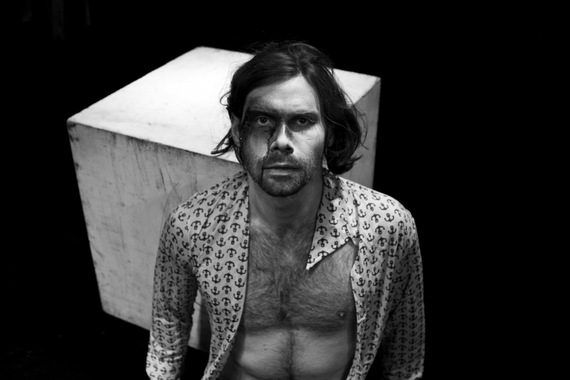Ten years after my original diagnosis, I 'came out' as bipolar. In one of my first HuffPost blogs, I told my story last year and have been listening ever since. What's surprised me most is how much opposition there still is over the use of psychiatric drugs. Whereas being improperly medicated is what landed me in the hospital, it's also what helped us find my proper diagnosis and eventually treatment.
I'd made it through my first year of college but knew something was wrong. I was turning inward and losing touch with reality, my grades were suffering, my relationships were non-existent and my thoughts were thoroughly scrambled. I started seeing a therapist over the summer on Long Island but we were getting nowhere, I could barely put thoughts together and he wasn't equipped for cases like mine. Though well meaning, he seemed eager for summer to end so he could push me off on a psychiatrist in the city, but I wanted answers, not drugs.
It wasn't that I doubted the efficacy of medication. I challenged its moral and spiritual implications. On the outside, I didn't want to appear weak. On the inside, I imagined there was some optimal, truest 'self' I was meant to be and medication would fundamentally alter this, as if I were a mixture of chemicals whose original recipe was best. Though claiming to seek relief, I'd grown attached to my depressions and elations. I saw an un-afflicted life as dull. My neurosis had become an identifying factor I clung to. Brain chemistry may be impersonal, but it feels like a magic potion that spawned our selves, and altering it is like a death or worse, an admission there is no self, not only are our bodies mortal but so are our thoughts, feelings and consciousness.
I had to choose a book for a science class that fall and found, Listening to Prozac. I'd been studying my mind all my life and it was time to learn about the brain. Though in touch with my shadows, my ego and id, my brain was running circles around me, digging me deeper and daring me to take it further. Listening to Prozac showed me the elasticity of the brain, how easily it can be manipulated by trauma, circumstance and even myself. I started to see the brain as more of a muscle, something I can train and change, my mind now the product of my decisions and behaviors instead of a mysterious force to be reckoned with.
Incorrectly, my first psychiatrist diagnosed me with standalone depression and started me on Zoloft. My state of mind changed but not necessarily for the better. My nervous indecision turned to careless oblivion, I became a far less reflective, highly social being with the sole ambition of pleasure. I stopped going to class and started sleeping with someone I previously despised. When I tried to explain this to my doctor, he simply upped my medication, exacerbating these changes until I became a sleepless being who bounced off walls, exclaimed exuberantly and tore out tufts of hair. My brain was on fire and my body desperate to escape, my thoughts dictated in my ear on a megaphone held too close.
The hospital diagnosed me immediately upon arrival: bipolar disorder with psychotic features. When a bipolar patient is medicated only with anti-depressants, the pendulum swings the other way, throwing them into relentless mania. This could have been a low point, but I was relieved to know I wasn't schizophrenic. My auditory hallucinations were from improper medication and would subside as we lowered my anti-depressant and put me on an anti-manic, mood stabilizer.
The following months would find me vomiting from lithium and lethargic from Depakote before feeling more myself than ever on a combination of Trileptal and Lexapro. With my thoughts slowed to a speed I could follow and my emotions rooted in reality, the fear of relapse slowly subsided and I started to reengage with life. I stopped fearing myself and started being myself. What's so scary about bipolar disorder is not just the change in emotion, but the change in perspective, waking up in the same bed as a different person, looking at these same walls for the first time and wondering how I got here.
Some of my friends brag about how little sleep they get, as if depriving oneself of the ability to function fully is something to be proud of. Perhaps I could survive without my meds, but would I have been able to graduate college? Produce and release my first record? Book concerts with confidence I'd show up and perform? I don't just want to survive, I want to thrive. Ten years later, I'm achieving my goals and have cut my original dosages in half to a 'maintenance level.' I now see my use of psychiatric drugs as a sign of strength, a fulfillment of the existential belief that it's our responsibility to create the world we want to live in, and that starts with our selves.
